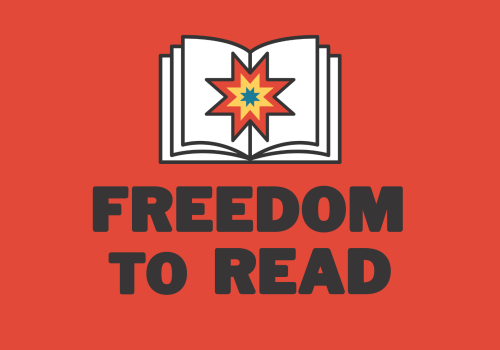BIPOC Bookstore Feature: Freedom to Read

Meet our Summer BIPOC Bookstore feature: Freedom to Read, a Native-led program of
Red Media
based in Tiwa Territory (Albuquerque, NM). It aims to alleviate the financial and societal obstacles that create book scarcity in and around Indigenous communities.
Support their program by purchasing books for their wish list at Massive Bookshop!
Q: We’re so excited to learn about Freedom to Read! Can you tell us a little bit about who your program serves, and how your partnership with Massive Bookshop works? How does Freedom to Read fit into your work with Red Media?
A: Thank you for featuring Freedom to Read! With Freedom to Read, we seek to alleviate some social and financial barriers that create book scarcity by offering free books. We prioritize Native people, but we also supply free books to community spaces wanting to highlight Native politics and history. Monetary donations go towards purchasing requested titles through Massive Bookshop. Additionally, Massive Bookshop helped us set up a book wish list on their website, where people can donate a book at a discounted price for Freedom to Read to distribute. The book wish list is a nice visual of which books Native people are requesting, and offers a vehicle of support. It’s genuinely steeped in solidarity.
Q: Your program creates literary access for incarcerated Native community members, as well as libraries and schools. Have you heard back from any readers about their experience receiving books from your program? Are your participants able to make requests for your booklist?
A: Honestly, we’ve been a bit slow getting books to incarcerated people because it’s something we want to get right, and Freedom to Read is still relatively young, so we want to have more developed principles. At the moment we rely on knowledgeable people for guidance to point us toward those with a solid structure for book distribution inside prisons.
In 2022, we received a letter from an incarcerated Native person expressing their thoughts and gratitude about two books we donated, The Red Deal: Indigenous Action to Save Our Earth and Red Nation Rising: From Bordertown Violence to Native Liberation, which Noname Book Club distributed. It was such a pivotal moment indicating that these books are needed. Earlier this year, we donated books to the Nambe Pueblo Tewa Language Department, and they sent us a card thanking us for providing culturally relevant resources. It was so rewarding to know that others can experience joy from a program like this, and it’s reciprocal.
We are currently trying different approaches, figuring out what works, and people are still learning about Freedom to Read. Next year, we aim to open communication for people to request books for themselves or their relatives.
Q: Your book list spans titles from children’s picture books, to poetry, academic texts, and more. How did you staff select these titles in particular?
There have been very few instances where I’ll add a book I think is essential for people to read. Still, for the most part, all of the books we have on our wish list have been requested or recommended by librarians, workers, relatives, professors, and organizers wanting politics, history, and stories by Native authors and authors from oppressed communities in their space. Our booklist is carefully curated and adjusted to meet the needs of the people.
Chris Baty's Blog
- Chris Baty's profile
- 63 followers



